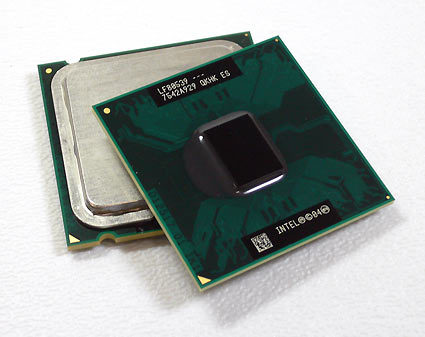AOpen Releases Core Duo To The Desktop
AOpen's Mobile On Desktop (MoDT) Launches
Ever since Intel's Core Duo mobile processor was introduced, we have been asking hardware manufacturers whether they were working on motherboards to support Core Duo in the desktop space. The answer we received most often was: "The market is too small." We do not believe this is true, since there are more applications for fast and energy efficient PCs than most people realize - especially as systems scale down in size.
Low-powered desktop PC solutions based on mobile processors are not new. AOpen was the first to release a Pentium M MicroATX motherboard based on the 855GM chipset, back in 2004; DFI followed quickly. Last year, both companies added 915GM based products to their portfolios, supporting the new Pentium M Dothan at the faster FSB533 bus speed. Although both platforms were suitable for desktop use and did sell, we suppose the majority of these went into commercial or industrial applications - such as ATMs, self-check-in machines, information terminals and medical systems.
As computers become smaller and more powerful, new applications will emerge for them. Ironically, these applications are not only restricted to what I just mentioned: It is Intel's Digital Home vision that will have a real chance as systems become cooler, quieter, smaller, more efficient, and more powerful. Welcome, Core Duo. Now, do you really think that the market might be too small?
Pentium M and Celeron M based solutions lacked punch when compared to the desktop Pentium 4 and Pentium D processors. In addition, the Pentium M cannot win the battle against the Athlon 64 and Athlon 64 X2 desktop processors - while efficient, it is not fast enough, and it is more expensive.
We expect Intel to release more information on its Next Generation Micro Architecture (NGMA) processors at the Intel Developer Forum (IDF) in San Francisco today. One "secret" that is already fairly public is that the upcoming Merom mobile processor is going to be pin-compatible with today's Socket 479 Yonah. As a consequence, AOpen's i975Xa-YDG should be able to host the next-generation product as well, meaning that it will stick around for a while.
Get Tom's Hardware's best news and in-depth reviews, straight to your inbox.
Current page: AOpen's Mobile On Desktop (MoDT) Launches
Next Page Core Duo On A Desktop Motherboard
Patrick Schmid was the editor-in-chief for Tom's Hardware from 2005 to 2006. He wrote numerous articles on a wide range of hardware topics, including storage, CPUs, and system builds.
